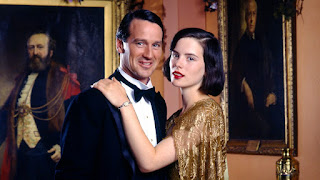A Day Off
Storm Jameson
1933
Around 215 pages
My library had never heard of Storm Jameson, and the options for hardcover versions on Amazon were unreasonably priced. So I did the unthinkable: I listened to the book on tape.
This probably doesn't sound so unusual to those who are working their way through this List through audiobooks, but it certainly ruffled my feathers. I just don't enjoy being read to. I always want them to hurry it along, and I miss the warm feeling of a book in my snobby hand.
On the other, less snobby hand, audiobooks can be great for road trips, long commutes, or nights of terrible chronic pain where you can't get to sleep. Sound off on your opinions regarding audiobooks in the comments!
Back to A Day Off. I love novels that take place in the course of one day (although as always, Fuck Ulysses). An unnamed woman takes a day off from her job at the glove shop, and wanders around London, waiting to hear from her lover George. She's not exactly a sympathetic character, given my jealousy she was in London. Putting aside my envy, she was a well-written protagonist. I enjoyed how the author weaved her backstory into the present day. And given the time period, the location was particularly interesting.
I don't necessarily think this is worth tracking down, since you will probably have to spend cashola to obtain it. But if you stumble upon this book on a lonely bookshelf somewhere, know that you have discovered a hidden treasure.
RATING: ****-
Interesting Facts:
Storm Jameson was a committed socialist.
Jameson wrote the introduction to the British translation of The Diary of Anne Frank.
UP NEXT: A Testament of Youth by Vera Brittain. Two women in a row, I've never heard of such a thing.






